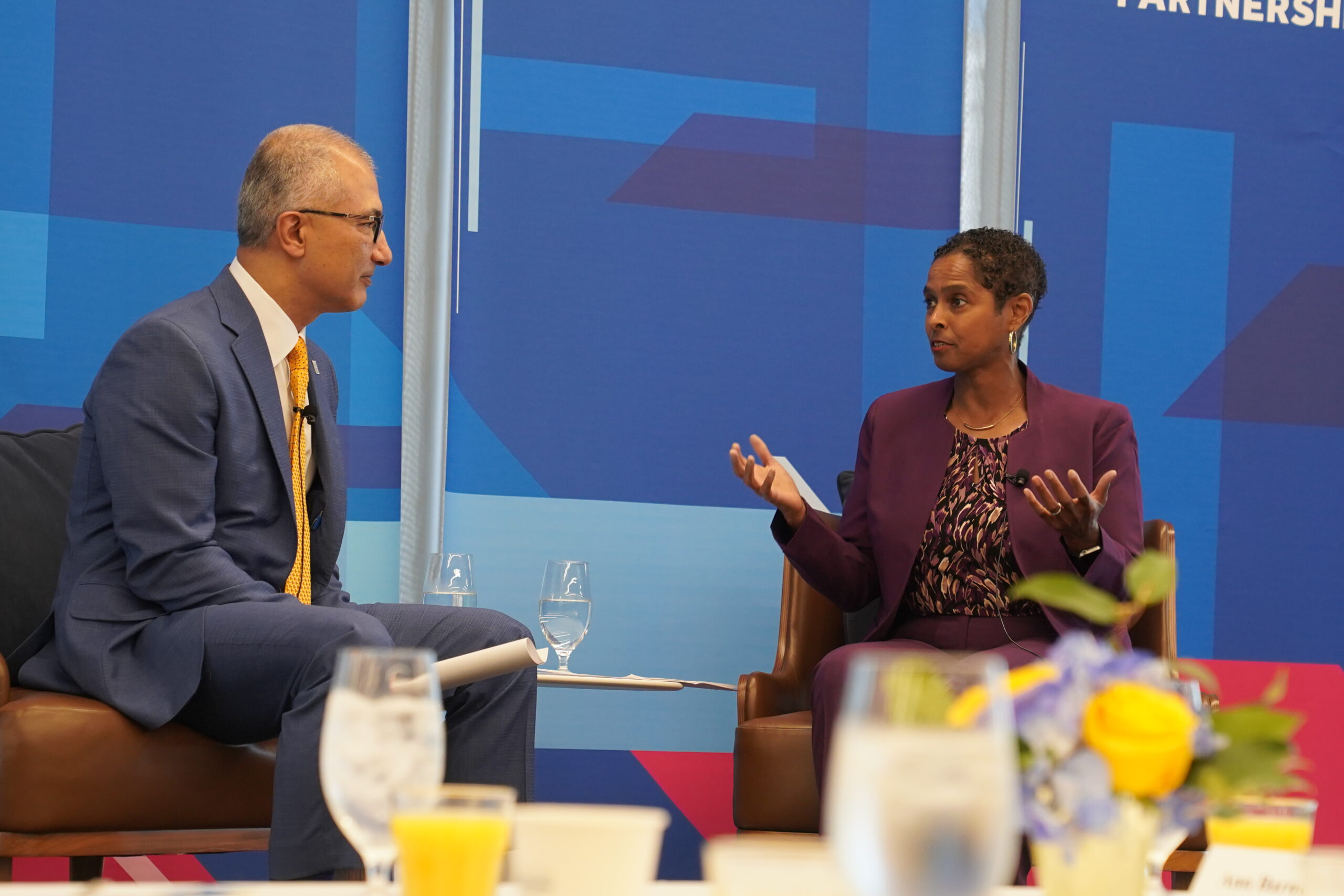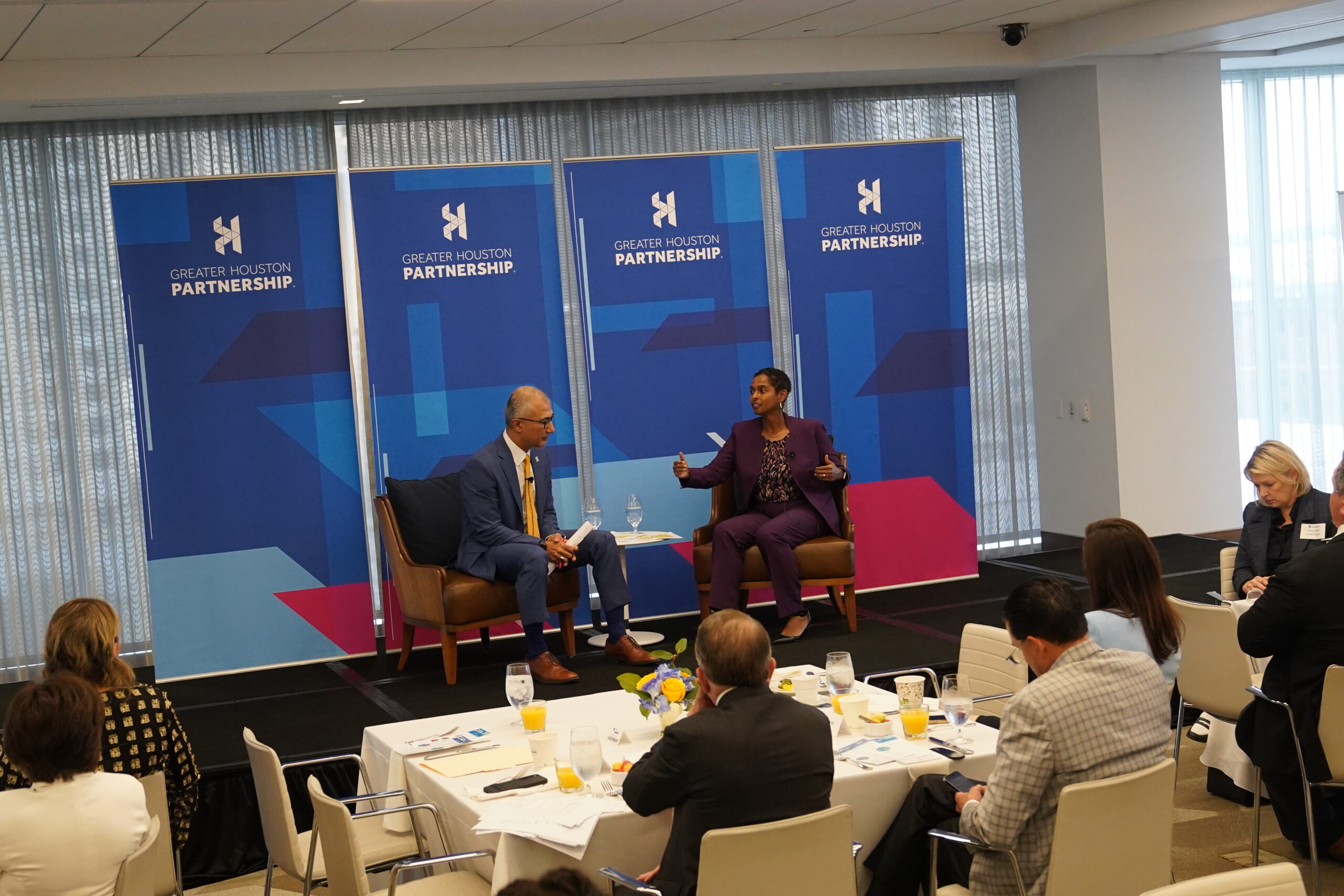
Episcopal Health Foundation CEO Dr. Ann Barnes shared an urgent message at the Greater Houston Partnership’s “Future of Healthcare” event: Texas faces a perfect storm of cuts, challenges, and missed opportunities to build true health for its communities.
Dr. Barnes opened her remarks by naming two immediate concerns facing the health system in Houston and across Texas: the chronic and continued underfunding of public health efforts and real concerns about primary and preventive care infrastructure.
“If people are not supported in their daily lives around health and if they’re not able to get preventive care or manage their chronic conditions, they are going to come somewhere into the health system significant illness,” she says. “And as that increases, it puts incredible strength on our entire health and health care system.”
In order to truly improve health in Houston and beyond, Barnes emphasized the critical need to look beyond the doctor’s office.
“We can’t fix health in the country, in Texas, in Harris County, with just the health care industry being focused on it. The role of integrating across sectors is vitally important right now.”
Dr. Barnes pointed out that while health care plays a role in a person’s well-being, it’s just one piece of the puzzle.
“A person’s health is influenced at about the 20% level when it comes to medical care. The other 80% of a person’s health is related to factors outside of the doctor’s office.”
Those non-medical factors—like safe places to exercise, access to healthy food, transportation, and education—shape whether a person can actually act on medical advice for someone recently diagnosed with a chronic disease like prediabetes.
“If I live in a highly-resourced community with a grocery store on every corner and beautifully laid out walking trails, my ability to act on the doctor’s recommendation is going to be a lot easier than if I live in a part of our community where sidewalks are broken, dogs roam the streets, there’s no grocery store, and I don’t have transportation,” Barnes said. “So addressing those issues are going to be critical for patient A and community A and patient B and community B to be able to live a healthier life.”
This philosophy is at the heart of EHF’s mission.
“When EHF was founded— we created one of our big mantras, and you may have seen our tagline—is improving health, not just health care. And the whole point was we’ve got to change the conversation locally and at the state level. We need to talk about health and those non-medical factors that impact a person’s health.”
Barnes also raised serious concerns about state and federal policy shifts that could undo progress and place even more pressure on Texas families and health care providers.
“If Medicaid shrinks, the majority of people on Medicaid in Texas are children, pregnant women, the disabled, and the elderly in nursing facilities. So which of those groups doesn’t get care if the pot is smaller?”
“How much are we going to reduce the level of care for each of those groups so that it’s barely care? And Texas will have to decide that.”
Yet another sobering reminder that funding cuts and program changes are not abstract policy debates—they’re urgent decisions that affect every part of the health system.
